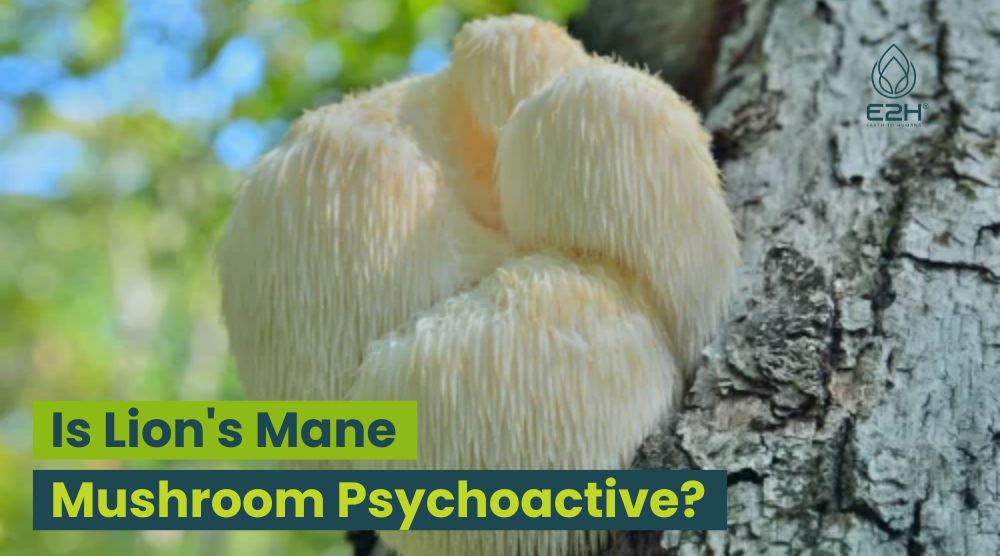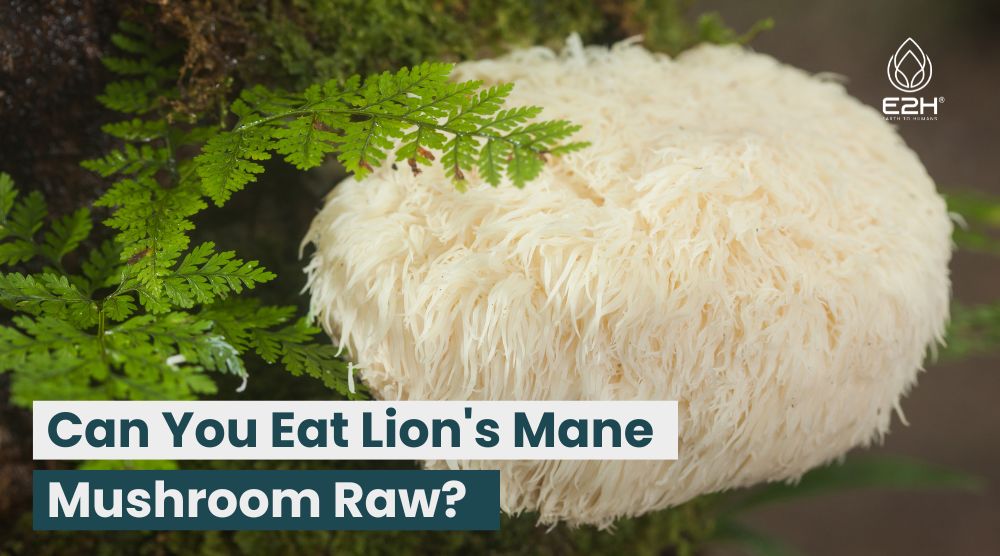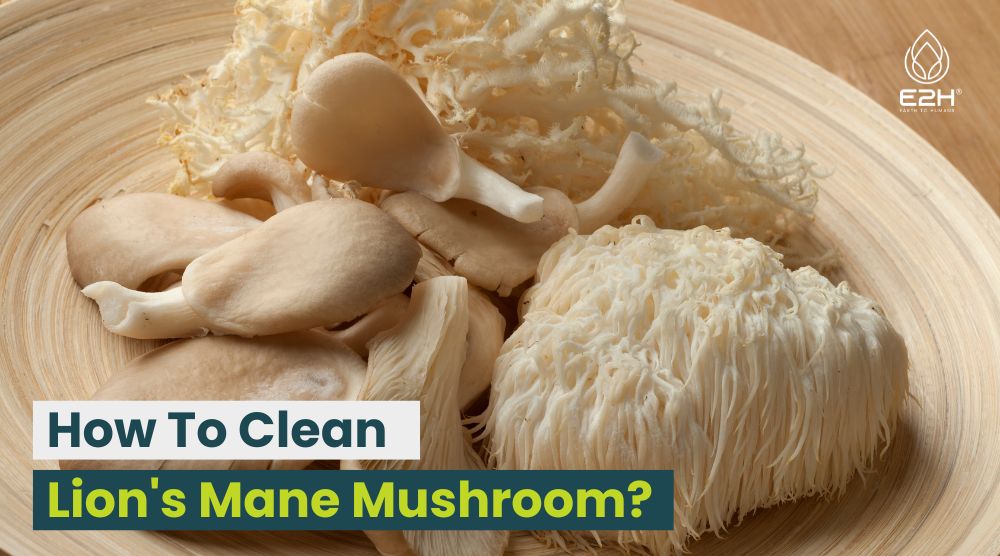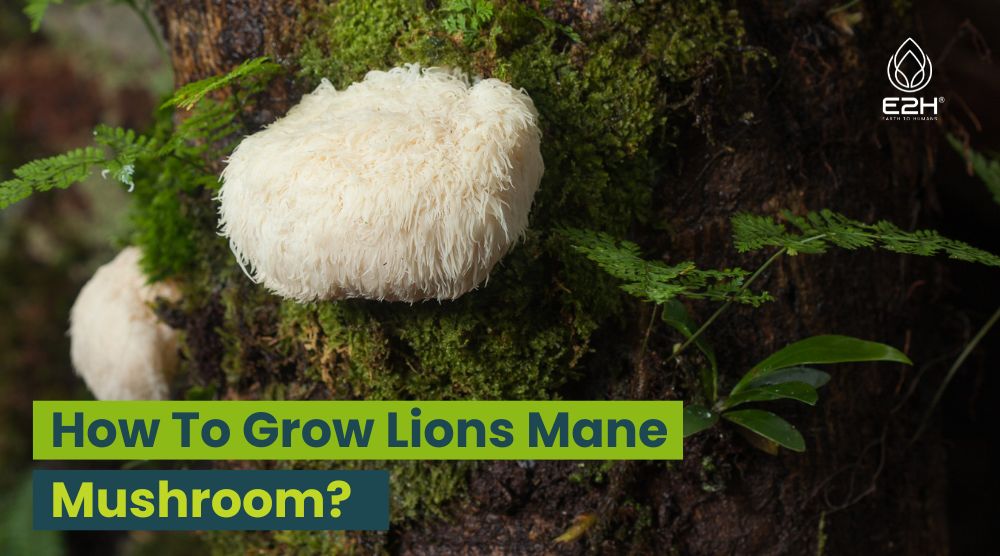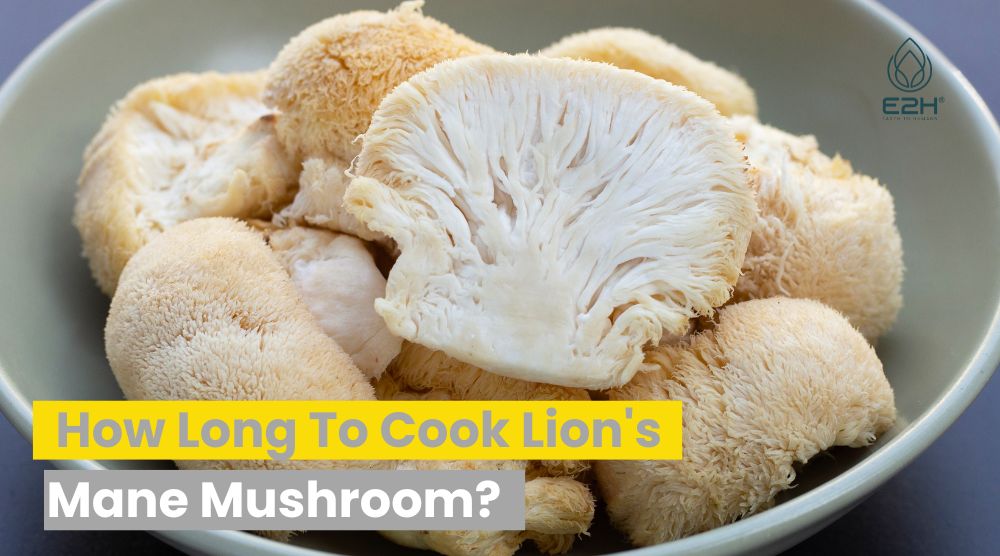Is Lion’s Mane Mushroom Psychoactive: No, Lion’s Mane Mushroom is not psychoactive. It does not induce hallucinations or alter consciousness. However, it has potential cognitive and neurological benefits.
What is Lion’s Mane Mushroom?
Lion’s Mane Mushroom, scientifically known as Hericium erinaceus, is a unique and distinctive-looking mushroom. Lion’s Mane Mushroom is native to North America, Europe, and Asia and has been used in traditional Chinese and Japanese medicine for centuries. Lion’s Mane Mushroom has a white, shaggy appearance resembling a lion’s mane, which gives it its name.
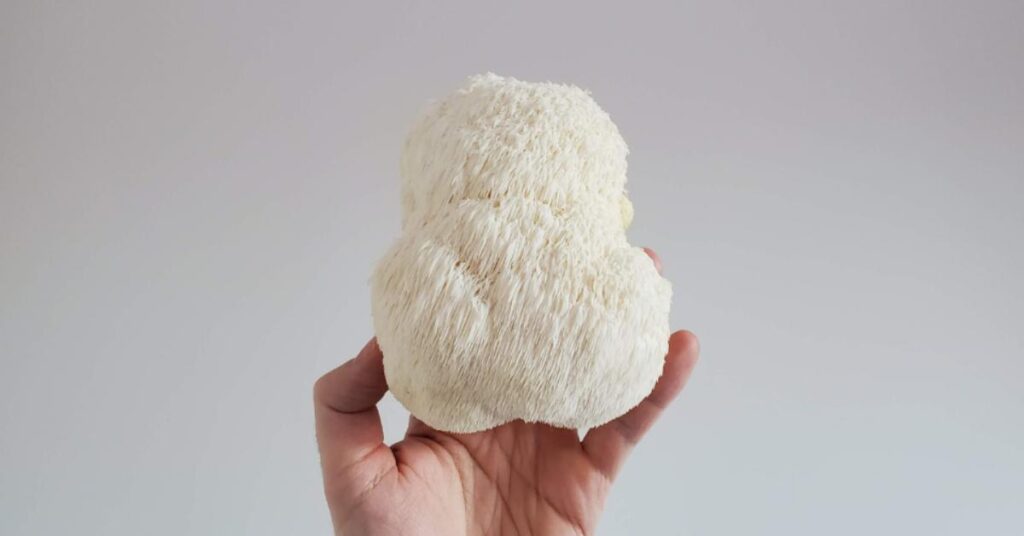
Historical Use of Lion’s Mane Mushroom
Throughout history, Lion’s Mane Mushroom has been highly valued for its medicinal properties. Traditional Chinese medicine used it to improve digestion digestive gut health, boost the immune system, and enhance overall vitality digestive health. In Japanese culture, it was known as “yamabushitake” and was believed to support mental clarity and cognitive function.
Active Compounds in Lion’s Mane Mushroom
Lion’s Mane Mushroom contains several bioactive compounds that contribute to its potential health benefits. Two primary compounds found in Lion’s Mane Mushroom are hericenones and erinacines. These compounds have been studied for their effects on the brain and nervous system.
Potential Cognitive Benefits
Improved Memory and Focus
One of the most notable potential therapeutic benefits of Lion’s Mane Mushroom is its ability to enhance cognitive function. Studies suggest that the bioactive compounds in Lion’s Mane Mushroom may stimulate the production of nerve growth factors, which play a crucial role in the growth and maintenance of brain cells. This stimulation of nerve growth factor may lead to improved memory, concentration, and overall, cognitive abilities and performance.
Neuroprotective Effects
Research indicates that Lion’s Mane Mushroom possesses neuroprotective properties. It is believed to help protect the brain against oxidative stress and inflammation, which are known to contribute to cognitive decline and neurodegenerative diseases such as Alzheimer’s and Parkinson’s.
Lion’s Mane Mushroom and Mental Health
Anxiety and Depression
While Lion’s Mane Mushroom may not be psychoactive in the traditional sense, it has more profound effects and research has shown promise in supporting mental health. Several studies have suggested that Lion’s Mane Mushroom extracts may have anxiolytic and antidepressant effects. These effects may be attributed to the mushroom’s ability to regulate neurotransmitters such as serotonin and dopamine, which play key roles in mood regulation.
Alzheimer’s Disease
Alzheimer’s disease is a progressive neurodegenerative disorder characterized by memory loss and cognitive decline. Research on Lion’s Mane Mushroom has shown potential in mitigating the symptoms of Alzheimer’s disease. The bioactive beneficial compounds found in Lion’s Mane Mushroom may help stimulate the growth of nerve cells and promote the production of myelin, a protective substance that covers nerve fibers.
Lion’s Mane Mushroom and Nervous System Health
Nerve Regeneration
One of the unique properties of Lion’s Mane Mushroom is its ability to promote nerve regeneration. Studies have suggested that extracts from this medicinal mushroom can stimulate the regrowth immune function of damaged nerves, making it a potential therapeutic option for conditions that involve nerve damage.
Multiple Sclerosis
Multiple sclerosis (MS) is an autoimmune disease that affects the central nervous system. While there is limited research specifically on Lion’s Mane Mushroom and positive effects on MS, the mushroom’s neuroprotective and nerve-regenerating properties suggest it may have potential benefits for individuals with MS. However, further studies are needed to understand medicinal mushrooms and its full effects.
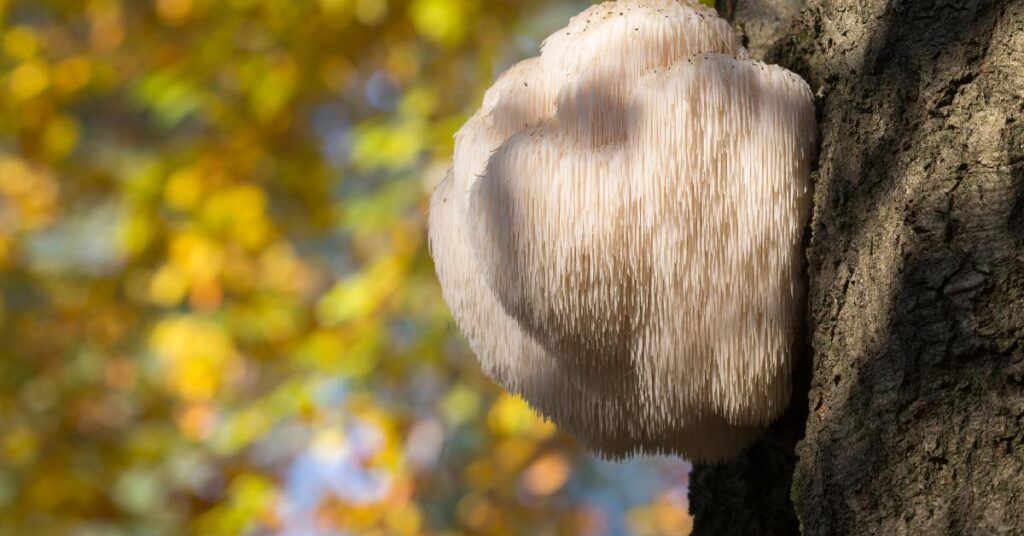
Safety and Side Effects
Lion’s Mane Mushroom is generally considered safe for consumption, with minimal side effects reported. However, individuals with mushroom allergies should exercise caution. As with any supplement or natural remedy, it is advisable to consult with a healthcare professional before adding Lion’s Mane Mushroom to your routine, especially if you have any underlying health conditions or are taking medications.
How to Consume Lion’s Mane Mushroom?
Lion’s Mane Mushroom can be consumed in various forms, including fresh, dried, powdered, or as a supplement. It can be cooked and added to dishes, brewed as a tea, or taken as a dietary supplement in capsule or tablet form. The appropriate dosage may vary, so it is recommended to follow the instructions on the product label or consult with a healthcare professional for personalized guidance.
Where to Find Lion’s Mane Mushroom?
Lion’s Mane Mushroom can be found in specialty grocery stores, E2H, farmers’ markets, or purchased online as fresh or dried mushrooms or as a supplement. Ensure to source your Lion’s Mane Mushroom from reputable suppliers to ensure quality and safety.
How does Lion’s Mane mushroom make you feel?
Lion’s Mane a psychedelic mushroom that is known for its potential cognitive benefits. It may enhance focus, clarity, and mental alertness. Some users report improved memory and overall brain function. However, individual experiences may vary, and the effects can be subtle. Lion’s Mane is not known to induce any other psychoactive effects or euphoric sensations commonly associated with drugs. Its impact is more focused on improved cognitive function enhancement rather than altering mood or emotions.
What are the psychological effects of Lion’s Mane?
Lion’s Mane has been studied for its potential psychological effects. It may promote neurogenesis, the growth of new brain cells, and support nerve cell health. This can potentially improve cognitive functions like memory, learning, and concentration.
Additionally, Lion’s Mane may have neuroprotective properties, which could help prevent age-related cognitive decline and neurodegenerative diseases. While further research is needed to fully understand its psychological effects, Lion’s Mane shows promise in supporting brain health and improving cognitive function.
Can Lion’s Mane Mushrooms have negative effects?
Lion’s Mane mushroom is generally considered safe for consumption, and negative effects are rare. However, some individuals may experience mild digestive discomfort, such as an upset stomach or diarrhea, when taking Lion’s Mane in high doses. It is important to start with small doses and gradually increase to assess individual tolerance. As with any dietary supplement, it is recommended to consult with a healthcare professional before use, especially if you have any pre-existing health conditions or are taking medications.
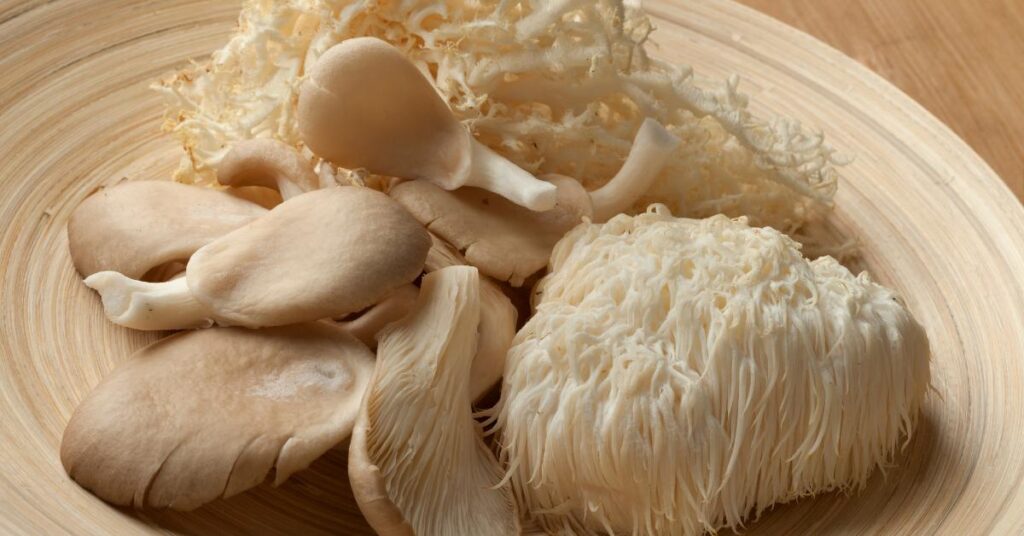
Is Lion’s Mane a drug addiction?
Lion’s Mane mushroom is not considered a drug, and it is not addictive. It is a natural edible fungus that has been used in traditional medicine for centuries. Lion’s Mane does not contain any psychoactive compounds like THC or psilocybin, which are associated with drug addiction. It is generally regarded as safe and does not cause dependence or withdrawal symptoms. However, it is always advisable to use Lion’s Mane or any supplement responsibly and as directed, following recommended dosages and guidelines.
Combining Psilocybin With Lion’s Mane – New Patent and $60M In Funding?
FAQs
Can Lion’s Mane Mushroom be used as a substitute for traditional antidepressant medication?
Lion’s Mane Mushroom should not be used as a supplement form a substitute for prescribed medication without consulting a healthcare professional. It seems medicinal mushrooms may have potential benefits for mental and cardiovascular health, but it is crucial to discuss any changes to your treatment plan with a qualified medical practitioner.
Are there any known drug interactions with Lion’s Mane Mushroom?
As of now, there are no known significant drug interactions associated with Lion’s Mane Mushroom. However, it is always advisable to consult with a healthcare professional if you are taking any medications to ensure there are no potential adverse effects.
Can Lion’s Mane Mushroom be safely consumed during pregnancy or breastfeeding?
There is limited research on the safety of Lion’s Mane Mushroom during pregnancy or breastfeeding. It is best to err on the side of caution and consult with a healthcare professional before consuming Lion’s Mane Mushroom during these periods.
How long does it take to experience the Lion’s Mane Mushroom?
The effects of Lion’s Mane Mushroom may vary from person to person. Some individuals may experience noticeable benefits of taking lion’s mane mushrooms after using within a few weeks, while others may require more extended periods of consistent consumption to observe significant changes.
Are there any age restrictions for using Lion’s Mane Mushroom?
Lion’s Mane Mushroom is generally safe for individuals of all ages. However, it is advisable to consult with a healthcare professional before giving Lion’s Mane Mushroom or its supplements to children or older adults, especially if they have any underlying health conditions.
Conclusion
Lion’s Mane Mushroom is not considered psychoactive in the traditional sense. While it may not induce hallucinations or alter consciousness, it possesses remarkable therapeutic potential in supporting brain health, cognitive function, mental well-being, and nervous system health. Its active compounds, hericenones, and erinacines, contribute to its various health benefits. As with any natural remedy, it is essential to consult with a healthcare professional before incorporating Lion’s Mane Mushroom into your wellness routine.
